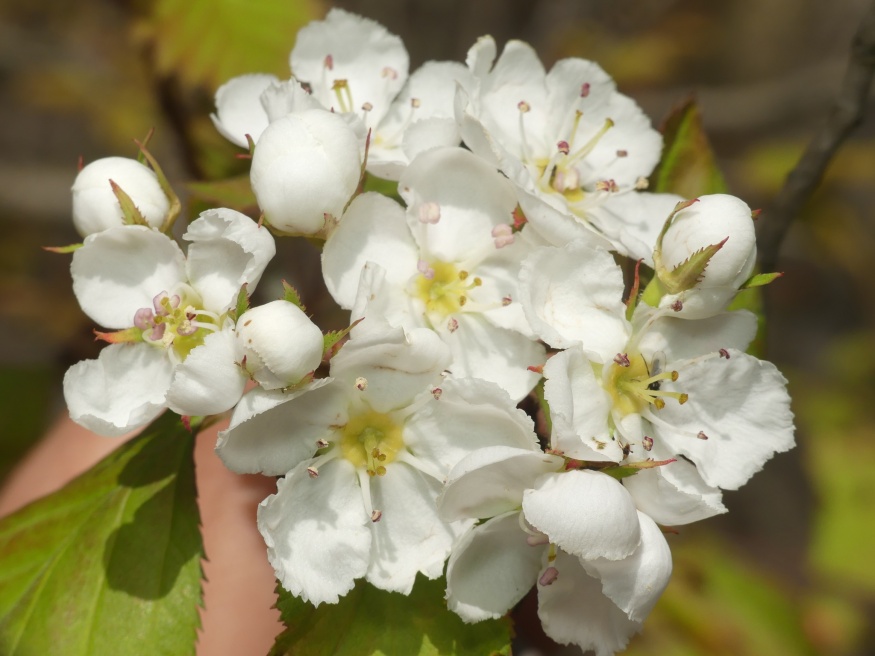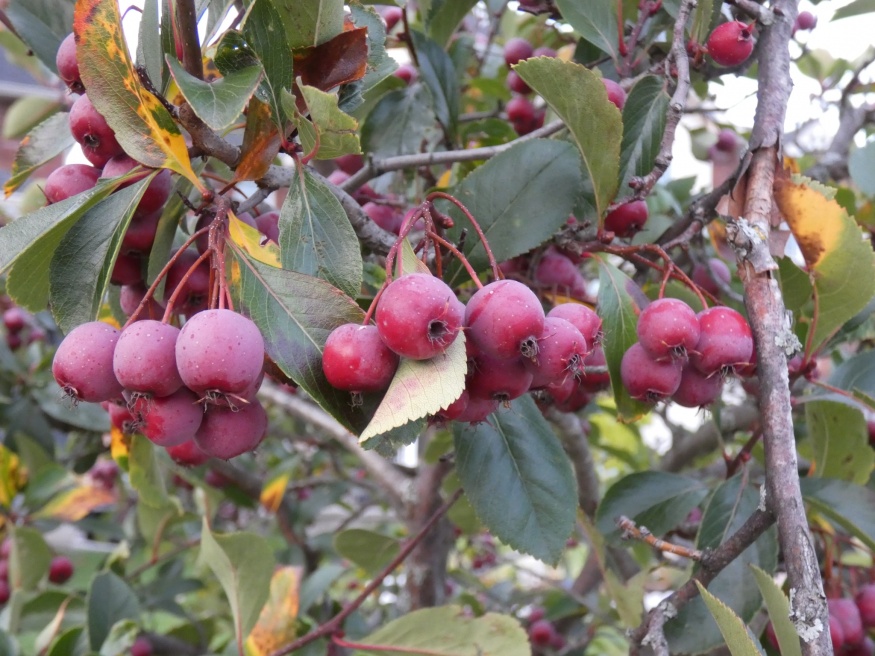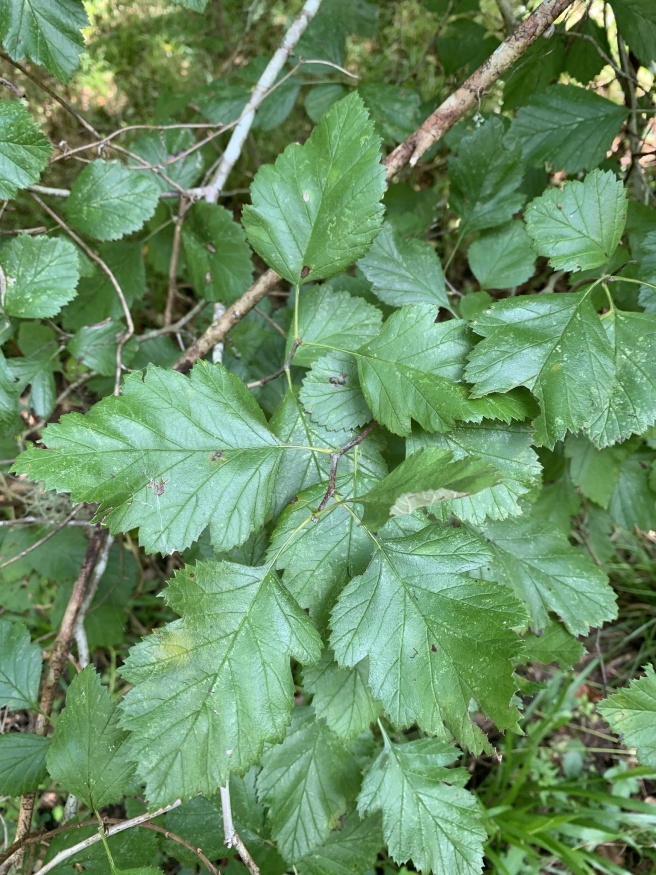About
Hawthorns are a large genus of Small trees or coarse shrubs in the rose family (rosaceae) in the northern temperate zone. With frequent hybridization and their method of reproduction in the wild, they can be difficult to tell apart from eachother. Often hawthorns are shrubby but can grow up to 39ft high with a 1ft trunk diameter. Over 100 species are native to North America and about 30 to Canada; mostly occurring from southern Ontario eastward. They have Low, wide spreading canopies often with a crooked trunk or multi-stemmed habit.
Their habitat consists of forest openings, abandoned areas, along streams, and especially in calcium rich soils. Hawthorns are tolerant and adaptable trees tolerating chalky or clay soils, drought, or over moist areas. Ideally however, they prefer well drained loam that retains moisture. Pollution resistance and attractive features makes it a choice tree to plant in cities or industrial areas.
Branches have thorns, which are typically smooth and very sharp. Leaves are often lobed and or have sharply serrated margins; young leaves are edible. Buds are round, shinny, and reddish-brown. The bark is smooth and gray when young, becoming darker brown, and ridged/fissured with age.
Showy, usually white (occasionally pink), flat topped clusters of flowers appear in April to May signaling the beginning of summer. 5 petaled flowers are an identifying feature of hawthorns. Small apple-like fruit with thin flesh develop and often persist into winter. These are pomes in type and are often called haws. Their colour is usually red, but can be yellow, orange, blue, or near black. The fruit is an important food source for wildlife, and are dispersed by mammals and birds. They are also edible by humans and can be used to make jams and jellies.
Hawthorns have been in North America for a very long time, dating back to the cretaceous period, 140 to 170 million years ago. They've been been used medicinally to lower blood pressure by dilating coronary arteries, or as a diuretic to treat congestive heart failure. Its hard, heavy, and durable wood can be used for tools, fence posts, and is suitable for carving or turnery. Hawthorns around the world have been associated with a lot of folklore, legends and tales, from stakes used to kill vampires, to fairies and gateways to other worlds.
The most common Hawthorns in Ontario are:
- cockspur hawthorn (C. crus-galli),
- dotted hawthorn (C. punctata)
- downy hawthorn (C. mollis),
- fleshy hawthorn (C. succulenta).
References
Encyclopaedia Britannica. (n.d.). Hawthorn. Retrieved from https://www.britannica.com/plant/hawthorn
Farrar, J.L. (2018). Trees in Canada. Ottawa, ON: Natural Resources Canada.
Tree Atas - Ontario. (2020). Hawthorns. Retrieved from https://www.ontario.ca/page/hawthorns
Yale University. (2020). Hawthorn. Retrieved from https://naturewalk.yale.edu/trees/rosaceae/cratageus/hawthorn-48
Shipping
We currently ship seeds to all Canadian provinces and ship plants just within the provinces of British Columbia and Alberta. Seeds ship year-round and usually take a few days (or longer if you are ordering from a distant province). It usually takes 2-5 business days in the mail for plant orders once shipped. Plants are generally available from May to September and can be reserved during off season; Shipping costs are calculated during checkout. Seed orders over $100 ship free! See Shipping for more details.


